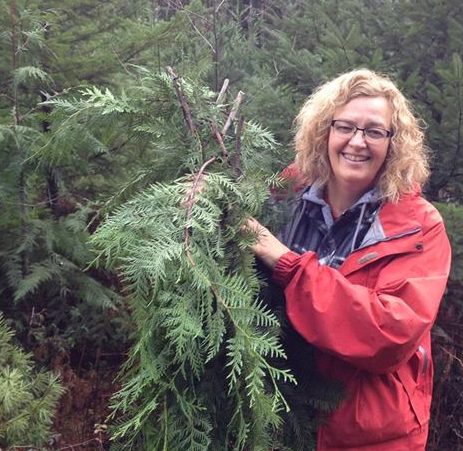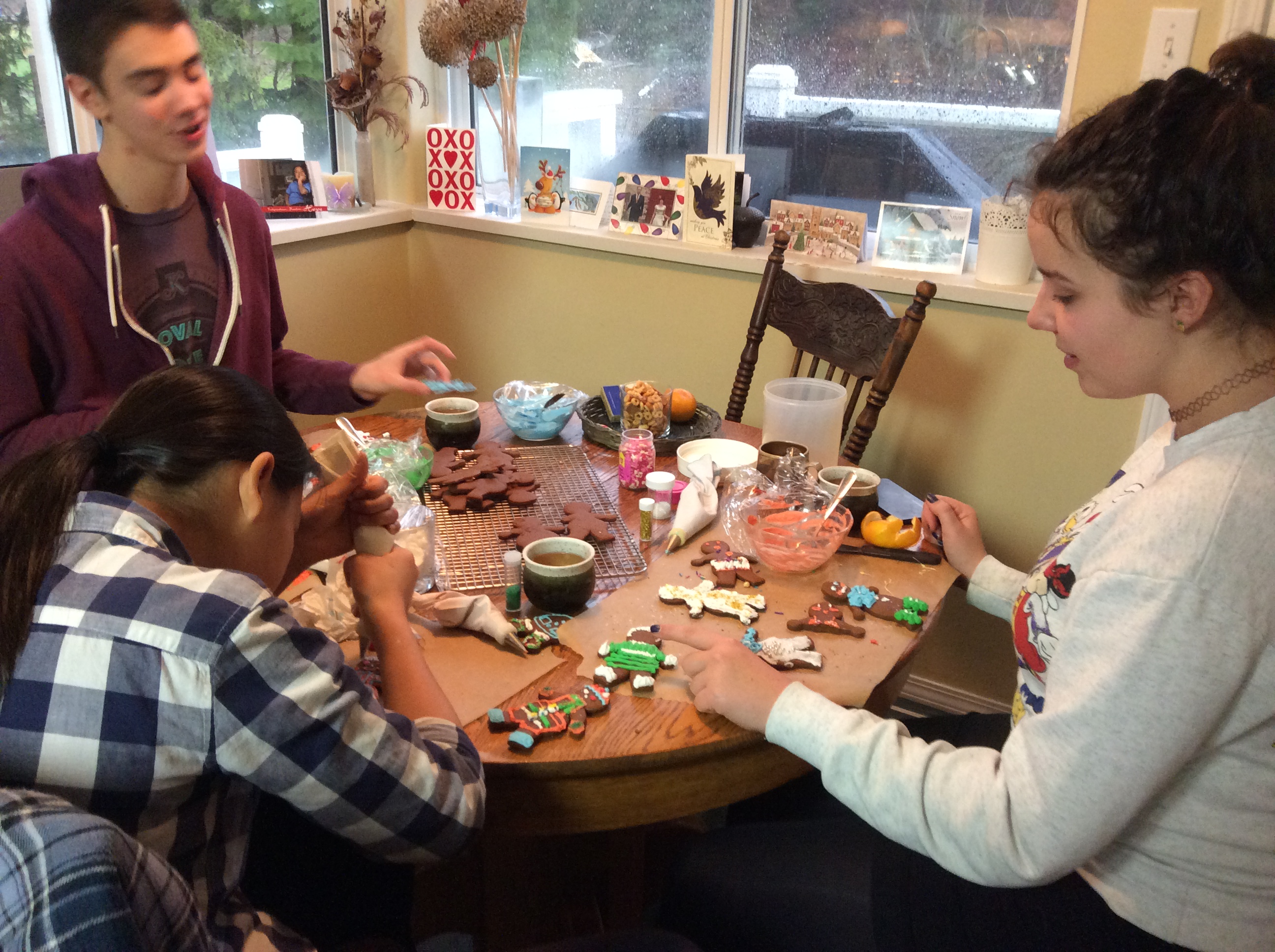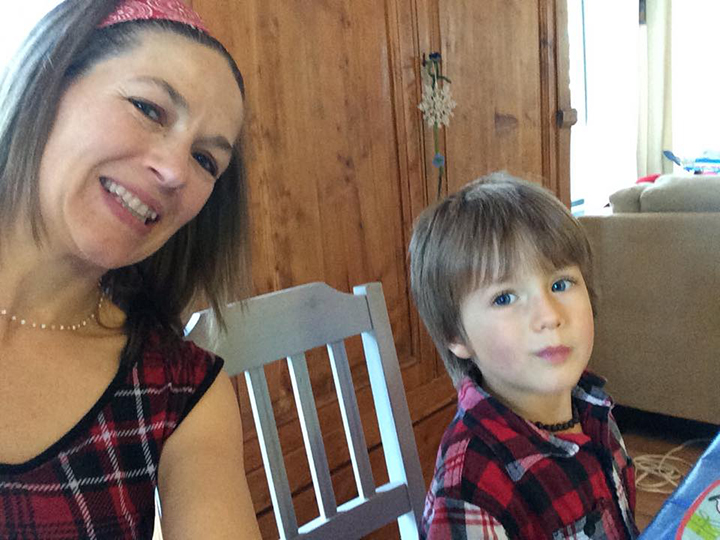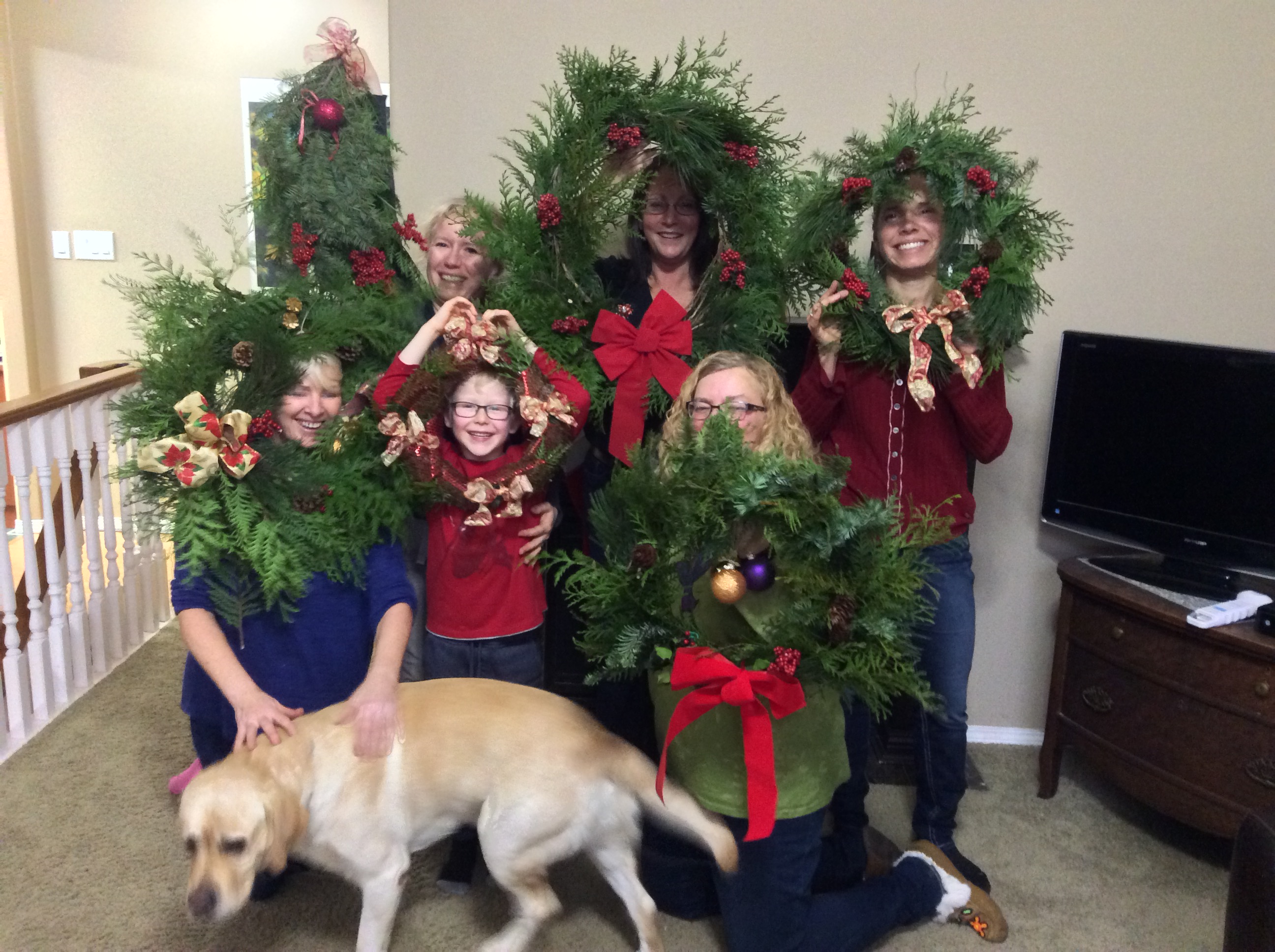A different kind of Christmas
Local counsellor wants to reframe the typical social views on the holidays
The holiday season is, for many, a time of joy, family, friends and the celebration of these things. For others, this particular time of year is not nearly so cheerful.
 As a counsellor, Fran Ferguson knows better than most, the struggles that some people go through – struggles that tend to be made even more difficult as they approach the holiday season in December.
As a counsellor, Fran Ferguson knows better than most, the struggles that some people go through – struggles that tend to be made even more difficult as they approach the holiday season in December.
“There are a lot – a lot – of people who are alone, for a whole variety of reasons,” Ferguson says, as she sits in one of the many comfortable chairs in her home office out on McGimpsey Road, just south of Campbell River, where she has her practice. “They might have lost a spouse, a child, a sibling – or their family changed through divorce or any number of other ways – and Christmas and the holidays, especially for those people, are a very hard time.” She knows this from seeing it first hand over her almost two decades in the field.
Her career
After spending most of her life in two other careers, Ferguson was what you might call a “late arrival” in the counselling world.
In fact, she only began her formal education and training in the field at the age of 35. She started with a bachelor’s degree in psychology before moving on to get her master’s degree specializing in counselling, because, as she puts it, “I found myself interested in other people’s stories – how they got to where they are – as well as how resilient people are, the struggles they’ve had and what makes for meaningful change versus being stuck in the struggle.”
Her interest in what makes people tick, combined with the fact that, “people seemed drawn to me to talk about issues in their life,” made counselling, she says, “a natural step.”
And now she’s been at it for 18 years.
Though she’s had experience in counselling everyone from young children to the elderly and everyone in between, she says she works “extensively with couples, from pre-marital counselling to working through any difficulties couples face in their relationship, including betrayals and affairs, right through to separation, divorce, and the aftermath of those life changes.”
Most people would agree that we all need a little help once in a while, even if it’s just someone to talk to about things that are bothering us. So why don’t more people make use of those few who are extensively trained in listening?
People are still reluctant to reach out to a counsellor, Ferguson says, because there is still a stigma attached to asking for help.
Many see asking for help as weakness – like being unable to cope makes them less of a person.
“My view is that life throws out plenty of challenges and difficulties,” Ferguson says, “and it’s very helpful to reach out for  help with them. People may be reluctant to reach out to a counsellor, but it can be super valuable – and a lot healthier way of dealing with emotional difficulties than alcohol, drugs, food or the many other non-effective ways of coping people often engage in when they’re struggling.”
help with them. People may be reluctant to reach out to a counsellor, but it can be super valuable – and a lot healthier way of dealing with emotional difficulties than alcohol, drugs, food or the many other non-effective ways of coping people often engage in when they’re struggling.”
A different kind of Christmas
Since she spends a good amount of her time speaking – and more importantly, listening – to people who are struggling emotionally, and seeing that people tend to emotionally struggle in even larger numbers and with even greater difficulty around the holidays, last year Ferguson started an initiative she calls “A Different Kind of Christmas.”
“It was very much an experiment, partly born out of my own experience and partly born out of what I’d also been hearing from clients,” Ferguson says.
You see, 15 or so years ago, when she and her husband moved out to this side of the country from their previous life in Manitoba, “what we found was that the tables were full,” she says. “People had their own family and friends already, so we found it incredibly difficult. I’d come from a large extended family and there was all that typical, large celebratory aspect to the holidays in my life for a long time.”
And then one year, when they didn’t feel like cooking Christmas dinner for two, they went to a local hotel for dinner, instead.
“And I looked around, and the people there were – well, let’s just say they were not happy people,” she says. “You could see the loneliness dripping off of them. So, thinking about that last fall, I was thinking maybe we could gather some people together for Christmas dinner.”
The idea morphed from there, though. It became less about opening their doors and welcoming strangers to their table and more about the message – and the ideal of Christmas – itself.
She started a closed Facebook page called “A Different Kind of Christmas,” where people could virtually gather and talk to each other, just to feel a little less disconnected.
“And then I started setting up coffee meet-ups at local coffee shops, just as an opportunity for the group members to actually meet each other in person and celebrate the season a little bit,” she says. The in-person gatherings gained traction with people and slowly turned into crafting sessions, baking sessions and other typical holiday activities that people said they were missing from their lives.
While they were having coffee meet-ups and making crafts here in Campbell River, the Facebook group was growing.
Soon the group contained members from as far away as Cape Breton and New York.
“What ended up happening is the group became a sort of online support group for people to talk and explain their situation and share with each other, and discuss what people are doing to help themselves during these emotionally difficult times,” she says.
“People started sharing stories, sharing poems, sharing photographs, sharing memories, and what was even cooler,” she adds with a smile, “is that people started saying, ‘I’d like to get this started in my own community.
“When I started this, I had no expectation about how big it would get or even how it would go. I just thought I’d offer it to the world and see what would happen.”
Maybe people are ready for a change
Ferguson thinks part of why the idea caught on is just the simplicity of it.
“It’s just about making connections – personal connections,” she says.
Those connections are important, and the need is there for them all the time, but when those connections aren’t there, the pain from that is more poignant during the holidays.
That pain, Ferguson says, is driven by expectation.
“There are a lot of expectations around the holidays, even if we’re not aware of them,” Ferguson says.
“You’re ‘supposed’ to be happy. Things are ‘supposed’ to be a certain way. Whether those expectations are self-imposed or imposed by others, the expectations are that everything needs to be perfect, and that’s just not an ideal that people can live up to, in most cases.”
But it doesn’t have to be that way.
“That’s, I think, the word that we need to spread,” Ferguson says. “It really doesn’t have to be that way. It’s hard to fight against the big retail establishments and their marketing plans, but if I can be one small voice that says we don’t have to do it that way – that we can just create something meaningful, I’ll be that voice.”
“My own view is that it’s the little things that are meaningful,” she continues. “It’s the time spent with someone you care about – whether that’s a friend or your family or kids or whoever it is. It’s not about the value of the present you get – that’s not what we remember about times that are meaningful to us.”
And so that’s what she’s trying to do. Create meaningful times. “It’s just about planting seeds and watching them grow,” she says.
“If nothing else, I just want to create inspiration for people to do something differently – to create something meaningful to them. It’s not up to me to tell them what that should be. I’m giving people, I suppose, the opportunity to create a different kind of Christmas for themselves, whatever they want that to look like.”
And maybe people are ready to do just that.
